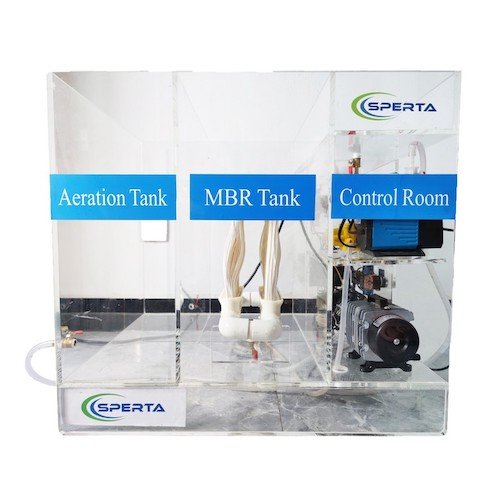In wastewater treatment, Membrane Bioreactors (MBRs) have been very mature. We can see various benefits from this technology. It not only improves the efficiency of water treatment but also contributes to environmental sustainability. Why it has become the preferred choice? Let’s dive into the critical advantages of MBR technology.
Enhanced Treatment Efficiency
The most significant advantage of the MBR system is its processing efficiency. MBRs can effectively remove contaminants, bacteria, and impurities from wastewater in two ways. The first way is to combine biodegradation. The second method is membrane filtration. This is why the water quality can be significantly improved and the reason for the high.
Compact Footprint
Compact structure is one of the standout features of MBRs. MBR systems are different from conventional wastewater treatment plants. The most important are designed to make more rational and efficient use of space. It doesn’t need to demand substantial land. This not only saves estate but also makes it possible to install where space is limited.
High-Quality Effluent
The production of high-quality wastewater that meets strict regulatory standards is the ultimate goal of all wastewater treatment. MBR technology performs well in this regard. The treated water provided by MBR technology consistently exceeds the water quality requirements. Clean, safe water can be reused for various purposes is the result.
Reduced Sludge Production
Traditional treatment methods often produce large amounts of sludge, leading to disposal challenges and increased costs. On the other hand, MBRs minimize sludge production through enhanced solids separation. This not only reduces disposal expenses but also lessens the environmental impact associated with sludge.
Flexibility and Scalability
MBR systems are flexible. It can be tailored to suit specific treatment needs. The MBR can be customized according to the size of the project and expanded as required. Its adaptability is the reason for the choice of industries.
Improved Reliability
Reliability is a cornerstone of MBR technology. These systems are known for their consistent performance. These systems can also ensure that water treatment remains dependable day in and day out. Wastewater treatment is continuous. It proves the reliability of the MBR.
Cost-Effectiveness
Overall, the upfront investment in MBR technology is substantial, but in the long run, it saves costs.
To achieve more sustainable wastewater treatment, it is necessary to reduce maintenance requirements. We also need to achieve greater energy efficiency and reduced chemical use.
Environmental Benefits
MBR technology is consistent with environmental sustainability. MBR technology is more environmentally friendly, lower carbon, and less energy intensive than traditional treatment methods. It means MBR technology is eco-friendliness. So, it becomes a good choice for environmental organizations.
Is MBR Technology Right for Your Application?
It is no doubt that MBR technology‘s benefits are undeniable. However, determining if it’s the right choice for your specific application has several aspects that need to be evaluated, such as treatment capacity, space availability, and treatment goals. Consultation with experts and MBR membrane manufacturers can help you make an informed decision.
How Can You Implement MBR Technology Effectively?
To effectively implement MBR technology, proper system design, maintenance protocols, and monitoring are indispensable. Working with experienced professionals can maximize the benefits of MBR systems.
Conclusion
In summary, membrane bioreactors (MBRs) have brought many revolutionary benefits to wastewater treatment. It has many advantages, such as high efficiency, compactness, high-quality effluent, and reduced sludge production. At the same time, it also has flexibility, reliability, cost-effectiveness, and environmental sustainability. Whether you’re in municipal wastewater treatment or industrial applications, MBR technology brings unparalleled advantages, aligning with SPERTA‘s guidelines for clear, organized, and informative content.













